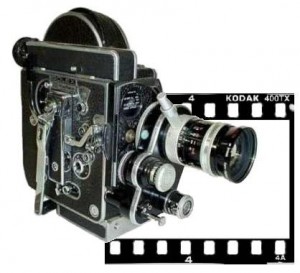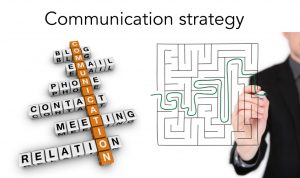 Whenever I give a media training, I always ask how the clients feel about the media, particularly how many feel the media is the enemy. I listen to horror stories of being misquoted; cutting clips to make the spokesperson appear to have said something out of context; and revealing information from an off-the-record conversation. These types of experiences can certainly make anyone skittish of interacting with the media, but there are ways to protect yourself in an interview.
Whenever I give a media training, I always ask how the clients feel about the media, particularly how many feel the media is the enemy. I listen to horror stories of being misquoted; cutting clips to make the spokesperson appear to have said something out of context; and revealing information from an off-the-record conversation. These types of experiences can certainly make anyone skittish of interacting with the media, but there are ways to protect yourself in an interview.
Tricks of the trade
Most reporters I know are very upfront and interview directly to the point. While my experiences with media members have been mostly positive, I have witnessed the following aggressive tactics to get a story.
1) Dead Mic or Wait-and-Stare
Human nature dictates silence as an uncomfortable stimulant for conversation. Think back to an awkward blind date. The worst part of the evening was probably sitting at dinner waiting for the food and trying to fill the void with any small talk that came to mind. A reporter knows how to create that awkwardness so you’ll fill it with something you didn’t mean to say. After you’ve answered a question, there will be no follow-up from the reporter, just silence.
How to respond: If you don’t want to play who-blinks-first, when you realize a reporter is using this technique, do the follow-up yourself. Ask the reporter if your answer was clear or if more information is needed. This forces the reporter to move on.
2) Repeating Questions
Reporters are determined people. Once they have an angle in mind, they can be like a dog with bone when it comes to getting what they want. You’ve answered a question to the best of your ability, and the reporter keeps asking it or slightly changing the wording but it’s the same question.
How to respond: First, make sure you’re answering the question with the most information you can provide plus your key messages. Once you’ve done this, stick to your answer explaining to the reporter this is the best response you have and why you can’t release any more information. Then steer the interview to the next point by introducing the new topic.
http://www.youtube.com/watch?v=rH-sdy50uik
3) Confrontational
I always tell clients not to take reporter tactics personally, but this can be hard to remember when a reporter is consistently cutting you off mid-sentence, talking over you, and implying negative notions about you and your business. Your wounded ego, though, can recover a lot quicker than your reputation after losing your temper on air.
How to respond: Take a deep breath, and don’t try to talk over the reporter’s interruption. Let him finish, and then launch into your answer with key message. The best way to avoid the confrontation in the first place is to answer the question as best as you can, and, like with repeating questions, if you can’t answer the question fully, explain why you can’t. In very rare instances, if the reporter has become belligerent, stop the interview. This isn’t to be used just because you’re getting hard questions; you should only stop an interview if the reporter is truly out of line.
4) Sharpshooter or Machine Gun
We’ve all seen the reports of someone walking out of a courtroom and being bombarded by several questions by dozens of reporters. A reporter asks a series of questions without pausing for responses until after about the seventh one, then abruptly comes to a stop while the interviewee is left looking like a deer in headlights.
How to respond: Slow it down and get the interview on your turf. I always tell clients reporters may have hard questions, but you have the information they need to make their story. Own it. Focus on one question in the series. Respond to that one question, and calmly ask the reporter to repeat his next question. Take it one at a time until the interview is over, and if you’re on a tight schedule, let the reporter know you’ll only have time to take x number of questions.
5) Reshaping the Statement
Summary questions are great for clarification, but beware the reporters that make a statement in the form of a question. “So, what you’re saying is that JKL Company is going under and a layoff is in the future?” The types of statements are meant to elicit a damning response either way you try to go.
 How to respond: Directly answer this so-called question by using a key message. Correct misconceptions, but stay away from giving a straightforward ‘yes’ or ‘no.’ “During the economic downturn of 2008, JKL Company has shared in the industry’s challenges. With a renewed fiscal plan, we are gaining ground and do everything possible to avoid layoffs. Some of our recovery tactics include cutting back on travel and executive extras.”
How to respond: Directly answer this so-called question by using a key message. Correct misconceptions, but stay away from giving a straightforward ‘yes’ or ‘no.’ “During the economic downturn of 2008, JKL Company has shared in the industry’s challenges. With a renewed fiscal plan, we are gaining ground and do everything possible to avoid layoffs. Some of our recovery tactics include cutting back on travel and executive extras.”
6) Off the Record
All interviews are on the record, or in other words, anything you say is fair game to be read in print, heard on radio or podcasts, or seen on air. For better clarity or more inside information, reporters sometimes will ask to go on deep background or off the record. This is supposed to make your remarks immune to showing up in stories. There is no such thing as off the record. Period. Just ask President Obama who thought his remarks on Kanye West in 2009 were “off the record.”
How to respond: Just don’t do it. If you wouldn’t be comfortable being quoted with the statements, don’t say it. If you’re asked to go off the record, politely explain to the reporter that everything you have to say on the topic is for the record.
I had an instructor at Defense Information School tell us that media interviews were like dancing with an 800-pound gorilla. Keep these tricks of the trade in mind, know how to successfully respond to them, and you can come out of the dance without having your toes crushed.
Have you ever been in a particular tricky interview? How did you come out of it?
photo credit: totallyfred via photopin cc



